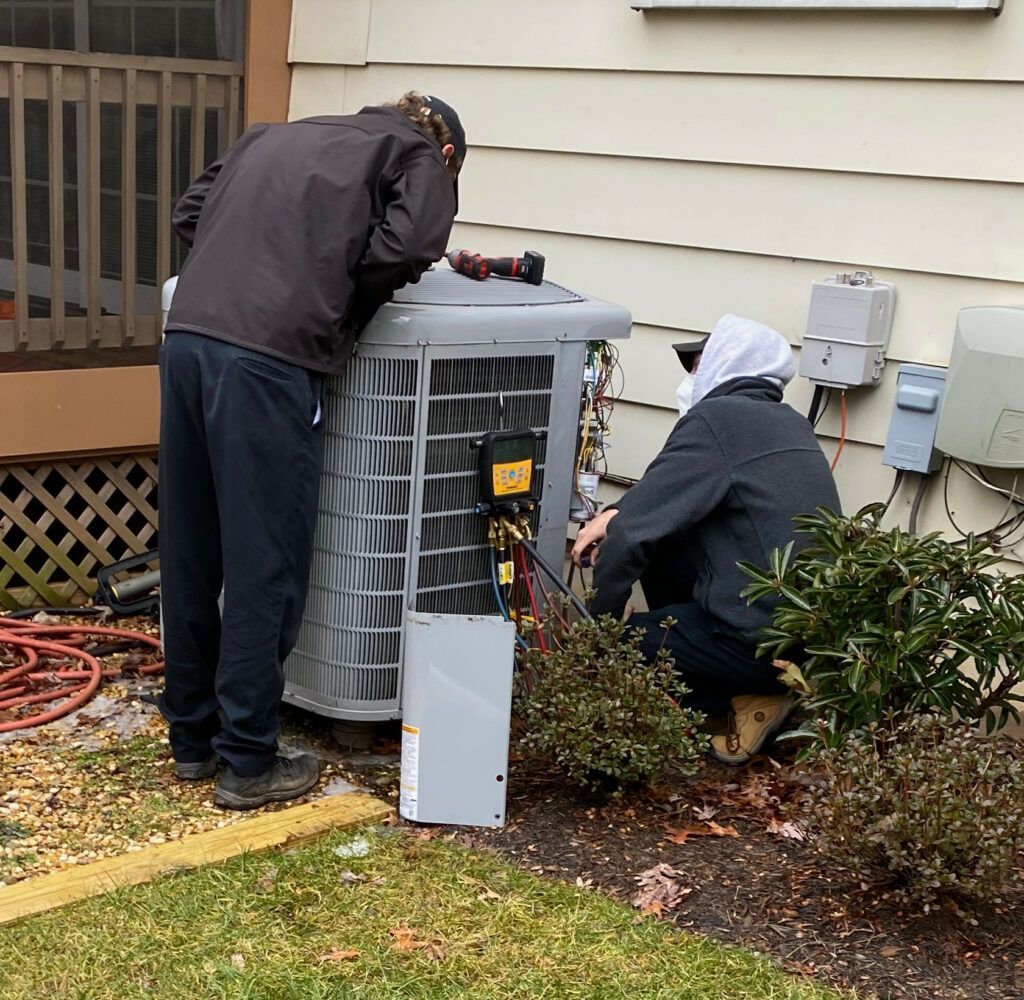Bailey the Dog and I were sitting quietly in the family room one day in February when an odd thing happened. I realized I was sweating and Bailey was panting lightly. It being the coldest day of the year, somewhere south of 20 degrees, this didn’t seem normal.
Our house in the Northern Virginia suburbs of Washington, D.C., uses an odd device called a heat pump to control the inside climate. The heat pump is basically a central air-conditioning unit that can also run in reverse, so to speak. It can both cool and heat your home, with fewer environmental effects than most other methods.
Once regarded as a novelty, heat pumps are becoming the norm these days for both environmental and economic reasons. They run on electricity, not fossil fuel, and thus don’t release carbon, the prime culprit in climate change. They are also cheaper to operate than furnaces that burn traditional fuels.
The recent heat wave that baked the Pacific Northwest created a stampede by homeowners seeking air conditioners. But experts are hoping that those homeowners will instead consider a heat pump for year-round heating and cooling.
Today, Americans buy more than five million air conditioners and three million heat pumps each year. “If virtually all of those sales were heat pumps, we could put a big dent in fossil fuel use,” said Nate Adams, a home performance consultant who worked with a Harvard University group that issued a recent report identifying heat pumps as an environmental plus.
Heat pumps reduce fossil fuel usage
Many homeowners could cut their fossil fuel use during the colder months by at least one-third, the report found.
As more cities convert to wind, solar and other renewable sources to generate electricity, the heat pump becomes an even more attractive solution, the report noted.
All of that is just fine, of course, but it didn’t answer the question of why Bailey and I were perspiring in the middle of a cold snap.
We walked outside into the blustery cold to investigate and were stunned by the silence that greeted us. The heat pump normally does a passable imitation of the jets warming up on the tarmac at Dulles International Airport but on this day its voice was stilled.
Looking more closely, I realized the thing was covered in ice. Icicles dripped from every edge.
This explained the unseasonable heat wave that was ravaging our home: the back-up heat was on. This consists of big heating coils somewhere in the depths of the furnace. They put out a lot of heat and also consume about as much energy as a field full of wind turbines can produce on a windy day.
Heat pump maintenance can be challenging
We put in a call to our friendly heating and cooling guys, who are frequent visitors in all seasons. Environmental advantages notwithstanding, maintaining a heat pump, even a new and expensive one, is sort of like trying to keep a vintage Alfa Romeo in top running condition. The claim is that heat pumps last about ten years. In a little over 30 years here, we have bought four.
Two trucks soon appeared and technicians spryly alighted. In no time the monster was disassembled, its parts sprawled inelegantly on the lawn.
An hour or two later came the verdict: rain.
“You know, Mr. Hood, it rained a lot Sunday and then turned really cold. Looks like the rain just got in there and froze up,” said the more senior of the techs. “Just one of those things.”
I don’t doubt the verdict is correct but it brings up the nagging question that maybe somebody should have thought about rain when designing these things, which are, after all, outside.
When we moved here back in the Reagan Era, it was during the first big “energy crisis,” which at that time meant there was a shortage of various fuels. Heat pumps were promoted as part of the solution. Now, of course, there is too much energy being generated and released, causing all kinds of climatic problems, including, um, heavy rain.
Certainly, as noted above, other types of heat have their problems, most notably releasing carbon. Natural gas is sometimes expensive, oil is kind of smelly and always expensive, wood attracts termites and coal is almost unheard of these days. But say what you will, none of them are prone to being rained out.
A few days passed while expensive new parts were flown in to replace those that had gotten wet and by Friday, the thing was roaring away in the back yard and the house was once again comfortably chill.

